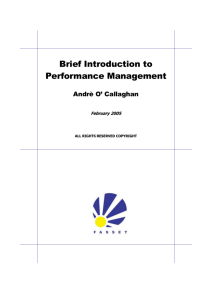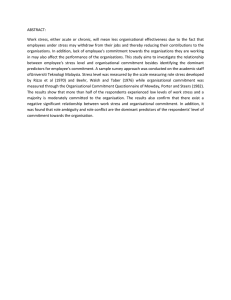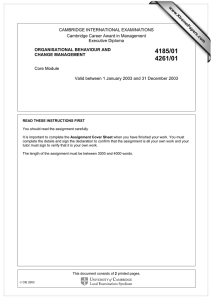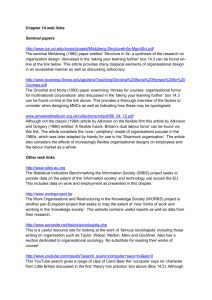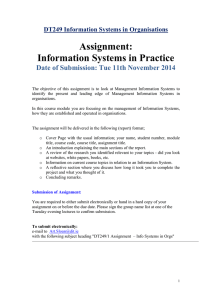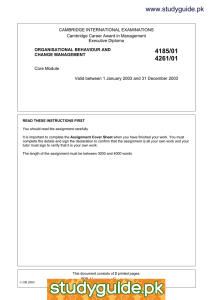Ethics And Leadership - Imperatives For Organisational Change.
advertisement
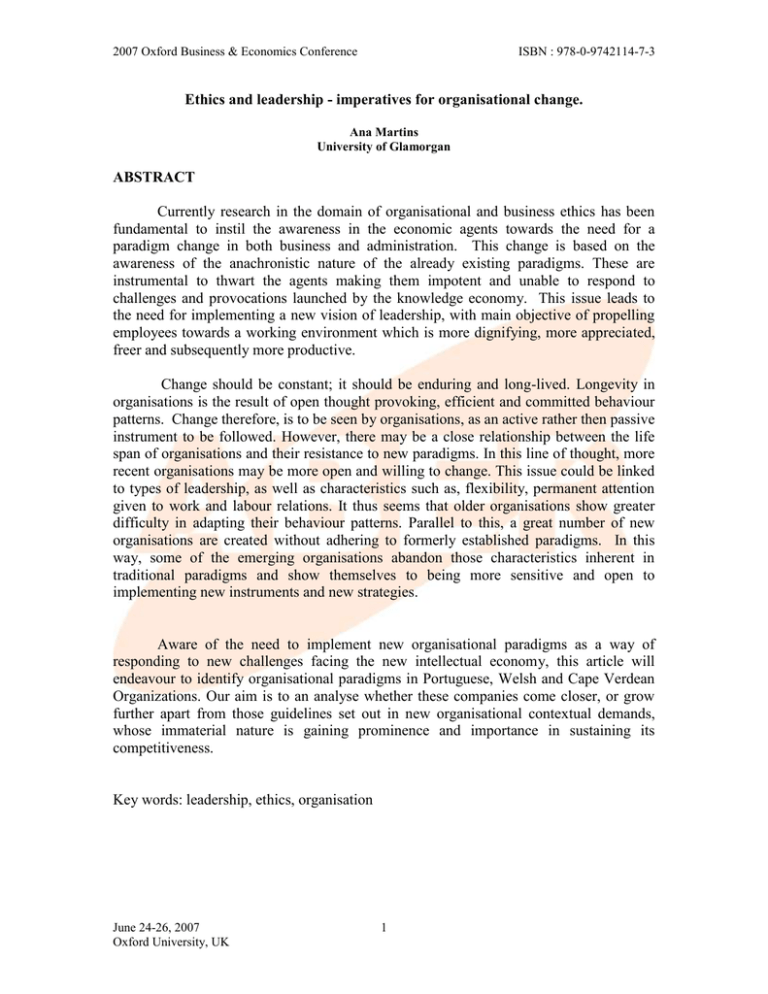
2007 Oxford Business & Economics Conference ISBN : 978-0-9742114-7-3 Ethics and leadership - imperatives for organisational change. Ana Martins University of Glamorgan ABSTRACT Currently research in the domain of organisational and business ethics has been fundamental to instil the awareness in the economic agents towards the need for a paradigm change in both business and administration. This change is based on the awareness of the anachronistic nature of the already existing paradigms. These are instrumental to thwart the agents making them impotent and unable to respond to challenges and provocations launched by the knowledge economy. This issue leads to the need for implementing a new vision of leadership, with main objective of propelling employees towards a working environment which is more dignifying, more appreciated, freer and subsequently more productive. Change should be constant; it should be enduring and long-lived. Longevity in organisations is the result of open thought provoking, efficient and committed behaviour patterns. Change therefore, is to be seen by organisations, as an active rather then passive instrument to be followed. However, there may be a close relationship between the life span of organisations and their resistance to new paradigms. In this line of thought, more recent organisations may be more open and willing to change. This issue could be linked to types of leadership, as well as characteristics such as, flexibility, permanent attention given to work and labour relations. It thus seems that older organisations show greater difficulty in adapting their behaviour patterns. Parallel to this, a great number of new organisations are created without adhering to formerly established paradigms. In this way, some of the emerging organisations abandon those characteristics inherent in traditional paradigms and show themselves to being more sensitive and open to implementing new instruments and new strategies. Aware of the need to implement new organisational paradigms as a way of responding to new challenges facing the new intellectual economy, this article will endeavour to identify organisational paradigms in Portuguese, Welsh and Cape Verdean Organizations. Our aim is to an analyse whether these companies come closer, or grow further apart from those guidelines set out in new organisational contextual demands, whose immaterial nature is gaining prominence and importance in sustaining its competitiveness. Key words: leadership, ethics, organisation June 24-26, 2007 Oxford University, UK 1
